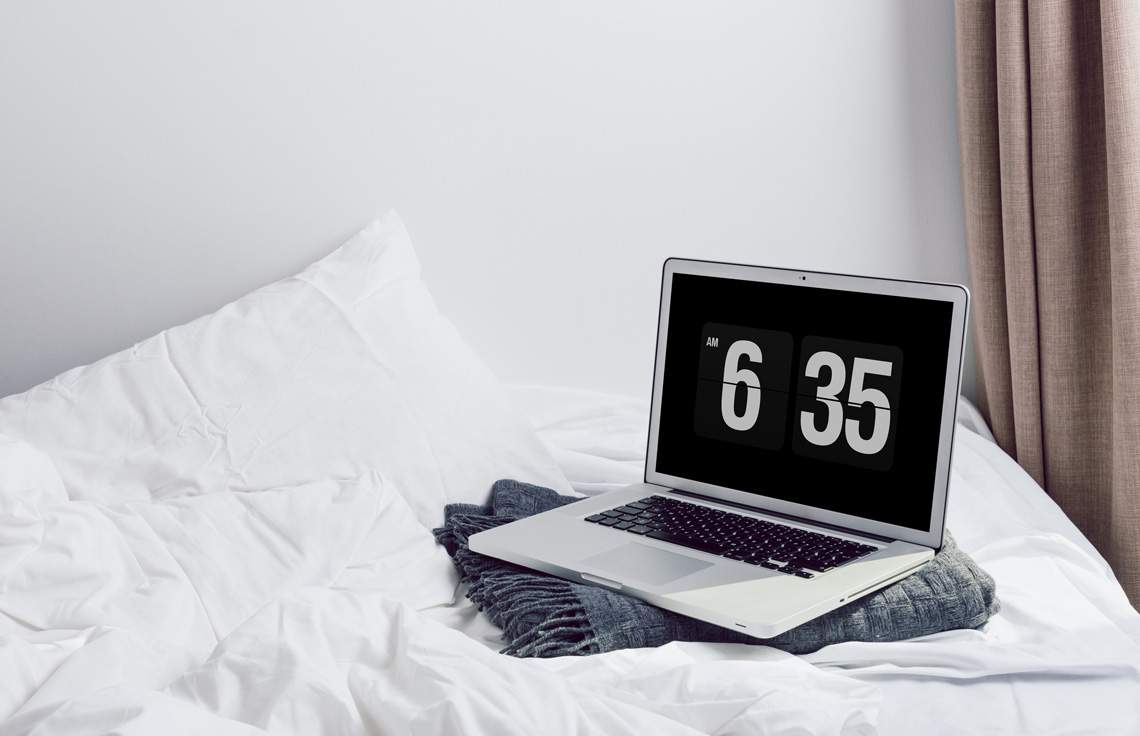How many interviews does it take to get a job?
When you’re job hunting or undergoing a major career transition, there’s nothing too much more exciting than getting that call or that email inviting you to interview at your target company.
Before you get too nervous, remember this. Multiple people (and maybe an Applicant Tracking System or two) have already vetted you. They think that your resume is fantastic.
They have been blown away by your
thoughtful and creative cover letter. They think your experience renders you the perfect candidate. You’ve displayed all of the skills necessary for the job at hand. Best of all? They want to know more about you.
Want to jump to the interview you need to ace today? Here you go!
We put this guide together to explore all types of interviews, how to excel at each interview format, and how to keep your energy and enthusiasm through what can be a lengthy and exhaustive multi-stage interview process.
The 10 Things You Must Do During an Interview
Here’s our guide to mastering the art of the job interview—from your first phone screen interview to your in-office final interview. Before we really get into it though, we have a few interview commandments that you should follow whenever you’re interviewing.
During the interview process, many people will take time out of their schedules to meet with you. Thank them during the interview, at the end of the interview, and after the interview with a
post-interview thank-you note.
2. Never be late.
Leave three hours early if you need to do it. Do a practice drive to the office to scope out parking. Don’t be late.
3. Know your company.
Before you arrive at any interview, be familiar with the company, its values, its history, its leadership, and why it appeals to you.
4. Watch out for red flags.
5. Never “wing it.”
We made it easy for you with answers to the most challenging interview questions:
6. Leave any negativity at the door.
We know you hated your last job. We know you hated your last boss, but that has no place in the interview. If you can’t say anything nice, try to
reframe negative lessons into positive learning experiences.
7. Let silence happen.
We promise the silence isn’t as long as you think it is. Let yourself have a moment to answer a question thoughtfully.
8. Be effusive with your thank-yous.
9. Make eye contact (and uncross your arms!)
In any job interview, your body language matters. Yes, it's even important to keep strong body language and good posture when interviewing over the phone! Consider it practice for your next interview.
10. Bring (or print) a copy of your resume.
This is sort of an old school tip, but some hiring managers will ask for a printed copy of your resume as a test. Bring at least five copies of your resume to every interview. If you're interviewing over the phone, have a copy handy for reference.
Now, let’s get that job.
It’s a networking technique that allows a potential candidate to connect with people from companies and industries you’re interested in without the stress that comes with a typical job interview.
One thing that sets the
informational interview apart from other interviews is its direction. You direct the informational interviews. The roles are reversed; you have the power of interviewing someone else in order to boost your career, should you use it.
The purpose of setting up an informational interview is to gather information about what you need to succeed in your career field, learn about a new field, or just talk to someone about their career path. The most important thing to remember about this process is that you’re not scheduling an interview to get a job offer. The
primary purpose of an informational interview is—as advertised—information.
Informational interviews are great for any age group, whether you just graduated from college or are considering a mid-career change. The exploratory nature of these interviews will allow you to ask the appropriate questions needed to help you get from Point A to Point B.
Pro Tip: Remember that informational interviews are part of a long-term search strategy, and it's rare for them to lead to an opportunity immediately.
Career Contessa Coach Alyson Garrido suggests that if someone asks how they can help, consider asking for an additional introduction so you can continue to grow your network. That is often an easier request for people to fulfill than if you ask about job openings.
More Resources on Informational Interviews:
How to Ace the Phone Interview
Phone interviews are a great way for an employer and a candidate to complete the first round of interviews. This low-commitment option allows for both parties to relax and learn more about one another without having to alter their schedules too much.
When you get a call or an email inviting you to complete your first round of interviewing on the phone, you may be elated or filled with dread. Comfort levels with interviewing over the phone vary. Some of us excel at describing who we are over the phone. Others? We find ourselves to be hopelessly awkward over the phone.
Either way, you can excel at a phone interview with a little prep.
Make sure to research the company beforehand. If you can demonstrate a working knowledge of the organization, you’ll increase your chances of being invited to the next round of interviews. Formulate insightful questions for your phone interviewer and give yourself time to answer questions directed towards you. One of the biggest mistakes phone interviewers make is speaking too fast or blurting out answers in fear of silence. Take your time.
Pro Tip: Although you won't be seen, set yourself up at a table, find a quiet space, and change out of your sweats. You'll feel more confident and professional this way and present yourself accordingly.
More Resources on Phone Interviews:
How to Ace the Group Interview
Group interviews are more common in retail and hospitality—or when an employer needs to hire several candidates in a fairly short time span.
For example, many brick and mortar retailers take on extra staff during the holiday season—and they often use group interviews as a way to quickly fill these roles.
The main advantage of a
group interview is that it saves time for the interviewer. For interviewees? This format can be jarring at best—and downright impersonal at worst.
However, group interviews serve another purpose. Since they are typically used for hospitality or retail positions, group interviews give the hiring manager some quick insights as to a candidate's interpersonal and communication skills.
Often, interviewers might stage group interview activities to watch how applicants work with each other.
Our two biggest tips for acing the group interview are as follows:
- Speak up at least once, but don't overtake the entire interview.
- Show (and/or tell!) how you can work well with others.
More Resources on Group Interviews:
How to Ace the Video Interview, aka “Virtual Interview”
Due to their efficiency (and effectiveness),
video interviews have become commonplace. It can save on costs, including a hiring manager’s travel budget, and most importantly, time. First-round interviews can be quickly scheduled based on availability, speeding up the hiring process overall for both the company and candidates.
Like any interview, the best way to have a successful video job interview is to prepare. In addition to researching your prospective employer and interviewer, it’s also essential to set up your technology and a backup plan for any events that are out of your control.
More Resources on Video Interviews:
How to Ace the In-Person Interview
So, you’ve been invited to the in-person interview. Sometimes, the in-person interview is the first interview. At other times, candidates won’t be asked to an in-person interview until after they’ve completed a phone interview or a video interview first.
Either way, your preparation will be comparable. Even if you’ve completed a phone screening with a recruiter, a headhunter, or with a human resources manager, your first in-person interview will likely be with your direct boss, members of your team, or even your entire team.
Whatever format your in-person interview takes, it will require even more preparation. While you may have giant notes scattered off-camera or in your notebook during a video interview or a phone interview, the in-person interview will be a test of how prepared you are, how composed you are, and how your personality might fit into the organization.
Don’t worry, we have plenty of resources on acing the interview, including a course by the same name,
Ace the Interview.
More Resources on In-Person Interviews:
How to Ace the Panel Interview
The
panel interview is an interview with two or more members of a hiring team. The interviewing panel could include your direct manager, an employee that works in your department, and other decision-makers.
But
why do a panel interview? Isn't it a waste of time? Not necessarily. Do you know what
is a waste of time? Requiring a candidate to spend eight hours in an office to meet every member of the team individually. Do you know what else is a waste of time? Coordinating seven different schedules to create a whole day of interviews for one single candidate.
As an interviewee, you'll likely get a better view of what the company culture looks like by meeting several potential team members. From the organization's standpoint, a panel interview gives several members of the team a chance to hire collaboratively. While the CEO might not see a fit from one skill standpoint, another panel interviewer might see a huge opportunity.
Panel interviews create a group dynamic, which can help the entire team (and the candidate) enact a sort of mini-test of how in-person collaboration and teamwork might look.
More Resources on Panel Interviews:
How to Ace the Second Interview
The candidates who pass the screening interview are selected for a
second-round interview. Second-round interviews typically involve more detailed interview questions about the applicant, their qualifications, and their ability to perform for the company.
The first-round interview acts as a warm-up for both the interviewer and the candidate. The interview questions tend to be more general. Their purpose is getting to know who you are on a basic level.
An invitation to a second-round interview takes things to the next level. It shows that the organization liked what they heard during the phone interview and the first round and sees potential in you joining their team.
Questions during this interview round may be more specific and focus more on the particulars of the job and your fit within the company.
Second interviews may also include introductions to other key members within the organization including superiors, senior management, and potential teammates. Last, but certainly not least, you should have your salary requirements ready to share.
More Resources on Second Interviews:
How to Ace the Internal Interview
An internal interview occurs when you’re up for a job within your home company. Maybe the role is in a slightly different department or maybe it’s a huge promotion.
The internal interview should be a walk in the park, right? Well, not necessarily. Sure, you have the advantage of being an insider already, but this might mean you need to impress the interviewer even more.
To ace the internal interview, you need to bring your A+ game. Because you’re already on “the inside,” your knowledge needs to be perfect. Luckily, you have access to all the cheat sheets, resources, and people you’ll need.
Pro Tip: Since you may know the interviewer, consider your interview responses from their point of view. If their priority is customer service, share stories through that lens. It will also be easier to create a connection during these conversations, so don't be afraid to mention a project that your interviewer may have been involved in. They'll understand the dynamics and what it took to be successful.
Don't assume that your internal interviews mean that people already know your accomplishments. We recommend keeping track of your successes through a
weekly career self-evaluation. This way, you can easily remember the work you've done and share the results of it.
More Resources on Internal Interviews:
How to Ace the Mock Interview
Like the
informational interview, the mock interview is an interview that isn’t necessary but will put you at a huge advantage for your next real interview.
The
mock interview is a great way to connect with a friend who is also looking to move their career forward or make a big transition. Interviewing is a skill that’s always worth working on, so try the mock interview for size. It could be a great way to reconnect with an old friend over Zoom on a Friday night. Yes, really.
A successful mock interview will allow your co-participant to ask you questions about the job, the organization, your experience, and your goals. Unlike practicing interview questions yourself, you won’t *really* know what they’re going to ask, you can receive immediate feedback, and you can watch the digital recording back if you want.
The next time you’re looking to interview, connect with a friend or partner to stage some mock interviews. Pay attention to the feedback offered! It will help you both in the long run—and it’s not even just for interviews.
Practicing mock interviews can help you with stage fright, oratory skills, networking, and even a dreaded online date.
More Resources on Mock Interviews:
How to Ace the Exit Interview
Many Human Resource departments will ask you to complete an exit interview. The purpose of the exit interview is to solicit your feedback about your role and time at the company and to make note of your reason for leaving.
The exit interview is for you, but it’s also for those who come after you. If you’re leaving a completely
toxic workplace, the exit interview is a place for you to (diplomatically)
express the parts of the role that didn’t work for you. Conversely, if you had a great experience under certain leadership or with a particular team, this is your chance to laud them.
Don’t use this as a time to vent, because the details will be recorded. However, do use it as your chance to communicate helpful changes that can be made.
The exit interview might require the least amount of preparation—and it might be the one interview you feel the least nervous to attend.
Make the exit interview count by communicating honest, thoughtful ways in which the company has worked and how you think it could work better in the future.
More Resources on Exit Interviews:
In Conclusion
The interview process varies from organization to organization. While some companies might conduct one in person and offer you the job on the spot, others might put you through rigorous rounds, test-taking, background checks,
personality tests, and more.
Due to the varying nature of interview processes, pretty much any of these interviews listed could be your “final interview,” but how do you know going into it?
Try to gain as much clarity throughout the interview process. When discussing a role with a recruiter, for example, you might ask what the interview process normally looks like. In this way, you can prepare to make sure you’re equipped for each stage.
Use the end of every interview to ask questions and gain clarity on the role and the organization. The interview gives you time to look for things you like about the company—and time to check for
signs of a dysfunctional workplace. Remember, the interview is a two-way street, even if it doesn’t feel that way at times.
Good luck!













